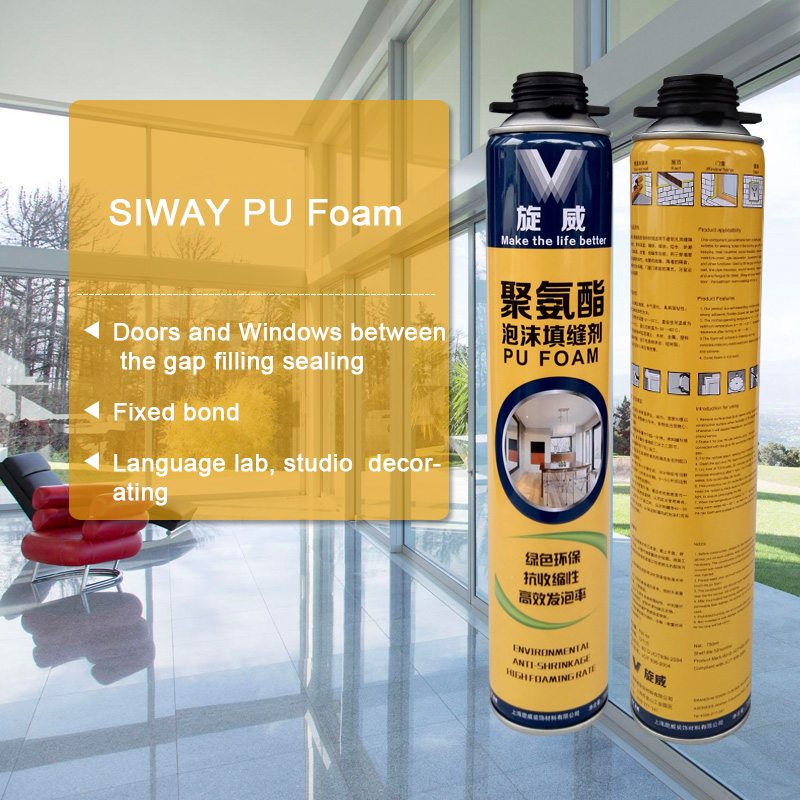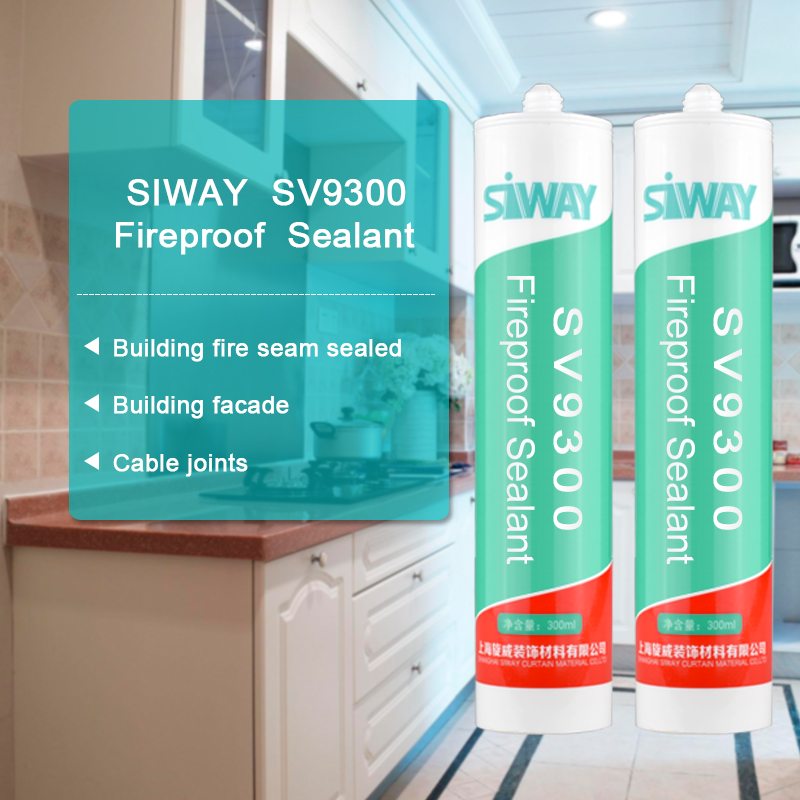Factory directly supply SV-666 Neutral silicone sealant Wholesale to Belarus
Short Description:
Description SV-666 neutral silicone sealant is a neutral curing glue single component, the modulus of the. It is specially designed for windows and doors caulking sealing general plastic doors and windows. It has good adhesion to glass and aluminum alloy, and has no corrosion. Where to use It is fit for multiple purpose sealing and bonding applications to form a silicone rubber adhering to adjacent substrates e.g. glass, ceramic, tile, wood and metal. Key Features 1. 100% silicone 2. Eas...
We depend on sturdy technical force and continually create sophisticated technologies to meet the demand of Factory directly supply SV-666 Neutral silicone sealant Wholesale to Belarus, We also ensure that your selection will be crafted with the highest quality and reliability. Please feel free to contact us for further information.
Description
SV-666 neutral silicone sealant is a neutral curing glue single component, the modulus of the. It is specially designed for windows and doors caulking sealing general plastic doors and windows. It has good adhesion to glass and aluminum alloy, and has no corrosion.
Where to use
It is fit for multiple purpose sealing and bonding applications to form a silicone rubber adhering to adjacent substrates e.g. glass, ceramic, tile, wood and metal.
Key Features
1. 100% silicone
2. Easy to use
3. Waterproofing and weatherproofing
4. Primerless adhesion to most building materials
5. 12.5% movement capability
Technical data sheet
| Test standard | Test project | Unit | value |
| Before curing——25℃,50%R.H. | |||
| GB13477 | Flow, sagging or vertical flow | mm | 0 |
| GB13477 | surface drying time(25℃,50%R.H.) | min | 30 |
|
GB13477 |
Operating time | min | 20 |
| Curing time(25℃,50%R.H.) | Day | 7-14 | |
| Sealant curing speed and operating time will have different with different temperatures and temperature, high temperature and high humidity can make sealant curing speed faster, rather low temperature and low humidity are slower.21 days after curing——25℃,50%R.H. | |||
| GB13477 | Durometer Hardness | Shore A | 28 |
| GB13477 | The ultimate tensile strength | Mpa | 0.7 |
| Temperature stability | ℃ | -50~+150 | |
| GB13477 | Movement capability | % | 12.5 |
Certification
JC/T881-2001 12.5E;GB/T14683-2003 12.5E
Color
Black,White,Gray
Package
300ml in cartridge * 24 per box, 590ml in sausage *20 per box
Shelf life
12 months
Note
If you want the TDS or MSDS or other details, please contact with our sales person.
the business is expert producer in China, electronic mail: cnzt003@zhongtuocn.com
Here I am doing basic glass cutting on a scrap piece of glass, actually it’s a mirror. For much more videos about basic glass cutting, etc. see the playlist: https://www.youtube.com/playlist?list=PL4A57AB2EFB9566F9&feature=plcp
Do not attempt to cut (pre) Tempered Glass, it cannot be cut and is designed to shatter to small pieces for safty purposes. You can cut (flat) Plate Glass.
The “glass cutter” does not actually cut through the glass, it just scratches or “scores” it, so it should be called either a “glass scratcher/scorer” or a “tool of glass cutting”.
The score is then used when you actually break or snap the glass along this “weakened” line (or even curves are possible). Technically, you try to “bend” both sides along the score downward to “open” (not compress) the crack up to the back side of the glass. In the vid. I show holding the piece of glass with my hands as a lot of people seem to do – especially with small pieces, but it’s safer to put the glass on a firm surface first and/or wear gloves.
To remove the sharp parts after cutting the glass, I used some sandstone I found down by the river. Just about any stone or cement will do, just dont use something too hard like smooth quartz since it tends to just “glide” over the glass. Use both straight and circular motion with the stone at about a 45 degree angle to the glass to bevel it to a non-sharp/thin semi-round surface. It is good though to have an electric grinder or rotary tool like a Dremel incase the break leaves some sizeable bumps of glass areas that would be difficult to grind by hand. If you dont have that, perhaps a larger piece of smooth cement might work ok.
Be sure to sweep up and vacuum any glass shards.
Note you can use a flat rule made of metal, wood, or plastic to guide the glass cutter, but be sure its not too thin since you do not want to damage the “cutting wheel” (the part that scores the glass) if it came in contact with metal.
About the tool I made; the ruler-straightedge with the rubber attached to the back. The rubber (or nylon) was cut from a bicycle inner-tube, and was attached with contact cement which is very sticky and somewhat flexible. This glue is sometimes called “rubber cement”. I got a tube for about $1. I also lightly scratched both surfaces of the rubber for better adhesion of the glue and for better “holding” ability on the glass. I guess you could also use some flat erasor type material too instead of the inner tube material. Silicone rubber or a thin coat or beads of dried caulking might be ok. Some tape can possibly be used to secure the straightrule, but you might have to clean up any residue left from the tape unless you put the tape right on the rule itself. When you cut the bicycle tube, avoid breathing the powder (usually talc or talcum), so rinse the tube segment with hot soapy water and let it dry.
Keep the “scoring wheel” oiled. I just keep/store that end in a glass with some clear oil in it. I use cheap “mineral oil” from the dollar/drug store.
Find some flat glass pieces and practice a bit on them so that you are prepared to cut glass when you need to.
Here is a good website about glass cutters, care and use:
https://www.freepatternsforstainedglass.com/your-glass-cutter.html




